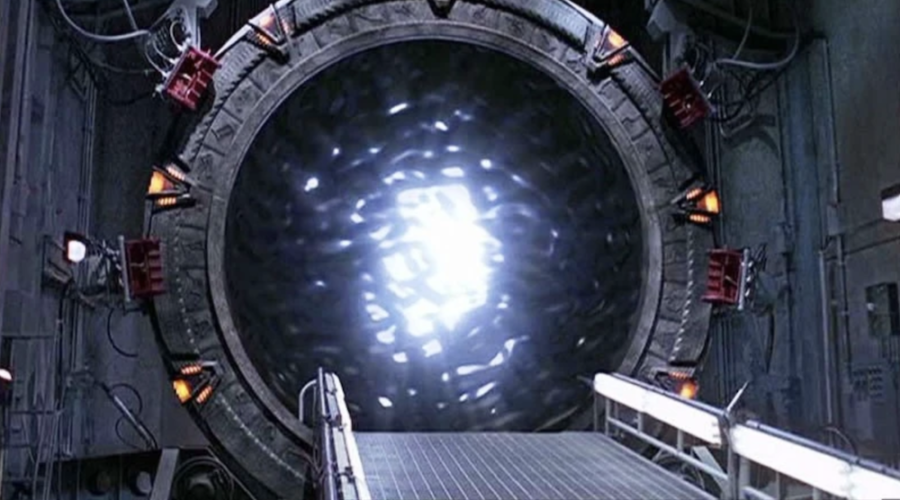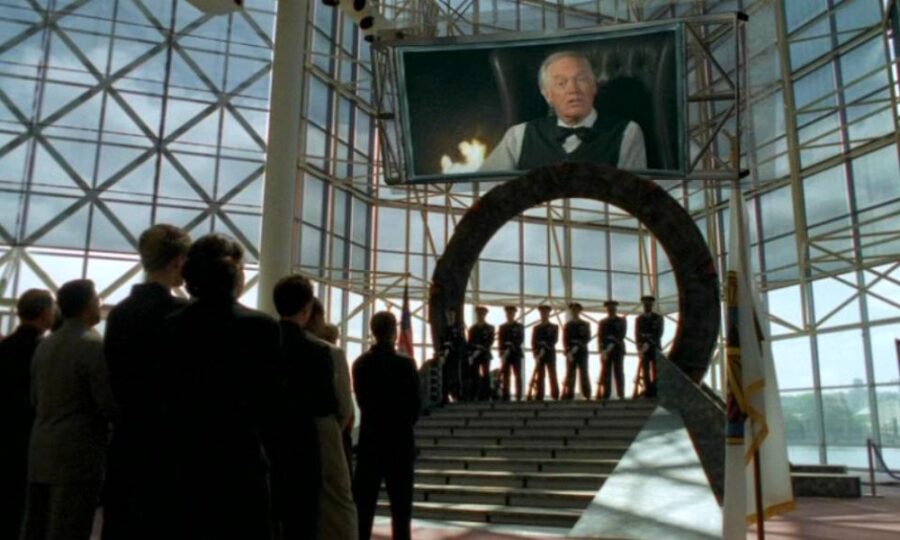Why Stargate Never Made A Comeback

As somebody who never got into the various Stargate series while they were airing, it still boggles my mind that the 1994 film spawned such a successful TV franchise.
Three series unfolding over some 15 years — that might not equal Star Trek or Star Wars levels of success, but in a TV landscape where science fiction series are usually killed swiftly, it’s no mean feat.
Stargate has been in limbo since the demise of SGU in 2011, but producer Roland Emmerich had revealed that he’s trying to resurrect the franchise as a new, rebooted trilogy. That seemed like good news for Stargate fans, but what about for one of the guys who helped shepherd all three TV spin-offs over the years?
Joseph Mallozzi served as executive producer and writer on Stargate SG-1, Stargate: Atlantis, and Stargate: Universe. If anybody has the credentials to comment on the future of the franchise, it’s this guy. And comment he did, taking to his blog to share his thoughts on where Stargate could — and should — go from here.
He first addresses the concept that was supposedly on deck: rebooting Stargate on the big screen. Mallozzi pointed to the success of J.J. Abrams’ Star Trek films as a template of potential success a rebooted Stargate could enjoy.
Here’s what Mallozzi had to say about rebooting Stargate.
…as proud as I am of everything we accomplished with the Stargate franchise, I’ll be the first to admit it doesn’t have quite the reach or support of Star Trek. And that’s nothing to be ashamed of.
Sure, we produced three series, two direct-to-dvd features, and some 300+ episodes over 15 years but, while impressive a feat, it pales in comparison to Star Trek’s five series, twelve theatrical features, and some 700+ episodes over 46 years.
As a result, Star Trek’s influence reaches far beyond its fandom – which is important given that, despite its established fan base, Star Trek: Enterprise was cancelled after four seasons. … A robust and passionate fandom doesn’t necessarily guarantee success.
He continued to point out the double-edged sword of any reboot of a property with a devoted fanbase: you have to make it an easy entry point for new viewers while simultaneously acknowledging or honoring what came before. This is related to Stargate of course.
You need loyal fans (which Stargate has), but for a big-screen franchise to work these days, you also need more than them. Abrams’ Star Trek films are a perfect example of the problem: they posit an alternate timeline that, in theory, allows new stories to be told with existing characters, all without “erasing” or devaluing the decades of pre-existing stories.
But even though the new Star Trek movies are in a new timeline, that hasn’t quieted the hordes of pissed-off Trekkies who think Abrams is running roughshod over Gene Roddenberry’s legacy. Those folks are balanced out somewhat by new fans who only came to the franchise with the recent films, but the problem remains…just take a look at the comments of any story we publish with the words “J.J. Abrams” in it. In a nutshell, you can’t please everybody.
There’s another thing to consider with Stargate, as Mallozzi points out:
Of course, one could argue that the reason this type of reboot worked for Star Trek is that, while these classic characters have long been engrained in the SF consciousness, it’s been almost twenty years since we’ve seen them onscreen in a new adventure. In the case of Stargate, well, it’s been about two years since we last saw Jack O’Neill grace the small screen. Is it perhaps too soon to expect fans will embrace someone other than Richard Dean Anderson in the role?
While Emmerich had seemed keen to bring Stargate back on the big screen, Mallozzi posits some other possibilities. Why not try to kickstart the franchise on TV with a mini-series or one-off movie that could, if successful, serve as a backdoor pilot to a new Stargate show?

Unfortunately, these all seem unlikely given that the diminishing returns of the spin-offs have left Stargate in a similar place as Trek after the cancellation of Enterprise…except without the massive pop-culture cachet that the Trek name brings with it.
So where does that leave Stargate? Mallozzi rounded it all out:
My gut instinct tells me the studio would LOVE to follow the Star Trek model: take an established property, re-imagine it for the big screen, and makes hundreds of millions of dollars. Of course, it could be argued that that is a very best case scenario. If the studio does consider going down this route, careful consideration will present two indisputable facts: a) Stargate is not Star Trek, and b) alienating long-time fans in favor of a new audience could prove disastrous.
As much as I would love to see that Atlantis movie or SG-1 movie or even a mini-series that incorporates elements from all three Stargate shows, this is the unlikeliest of scenarios for the simple reason that the risks far outweigh any potential rewards.
No, given the history of the franchise, it would seem a new television series would be the best way to go – a fresh take on Stargate that would bring in new viewers while rewarding the long-suffering fans.
What do you think? Does Stargate need a fresh start, or should it find a way to continue building on the already established legacy?











